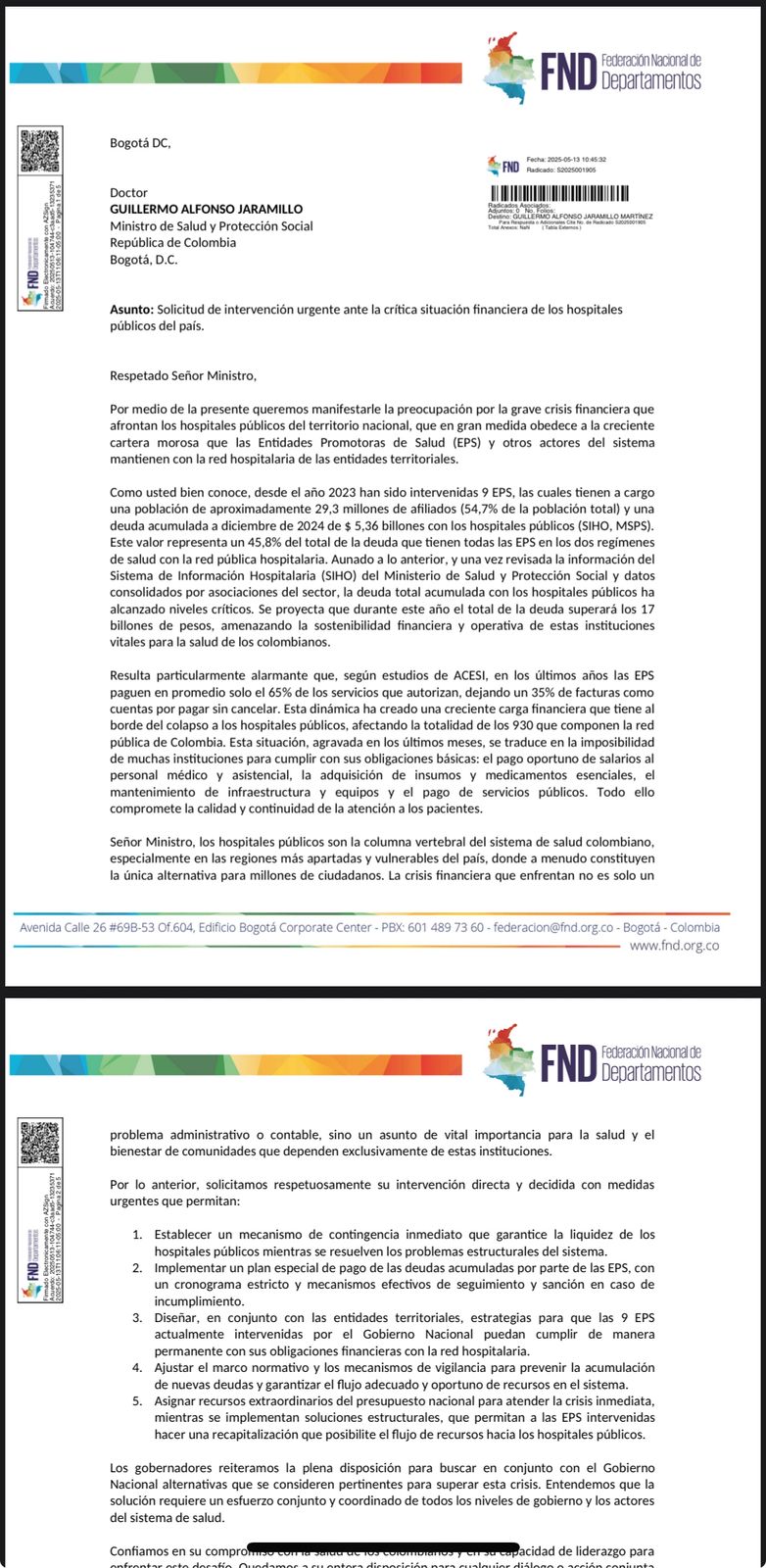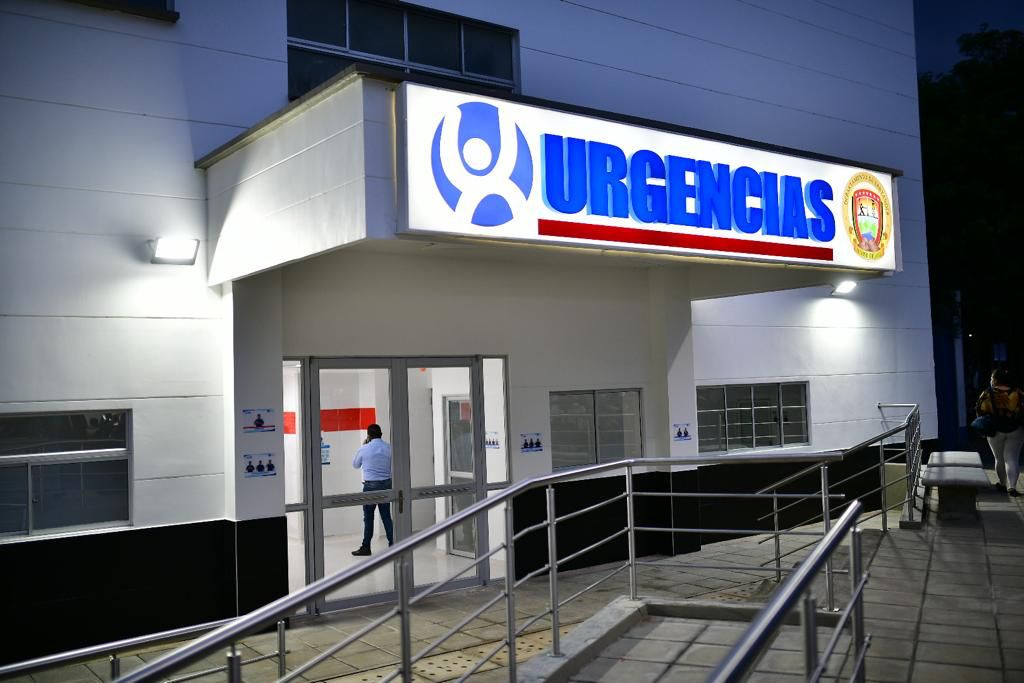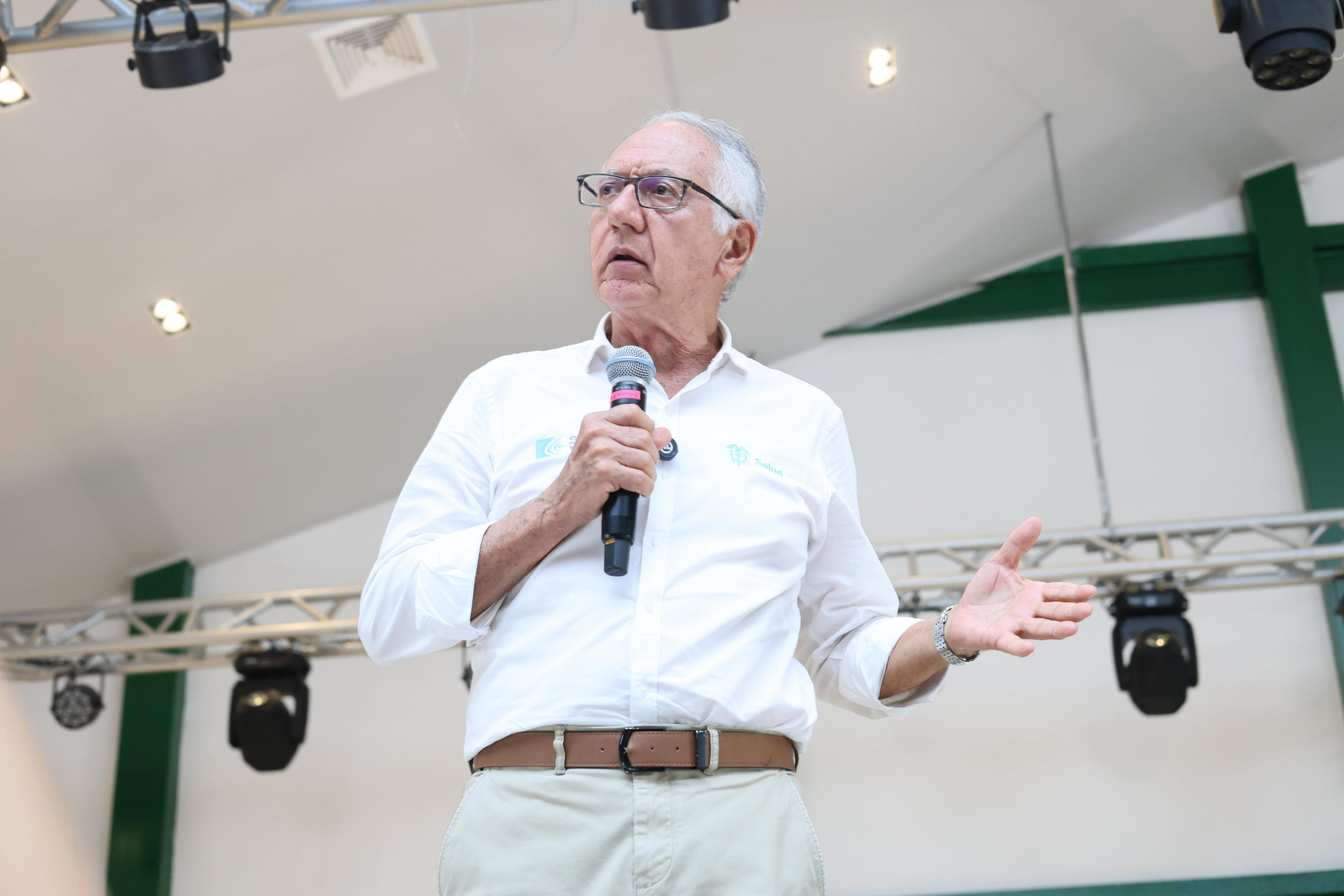Public hospitals and medical care in Colombia are reportedly in intensive care, governors warn.

In a letter sent this Tuesday to Health Minister Guillermo Alfonso Jaramillo, the country's governors, members of the National Federation of Departments (FND), called for urgent action in response to the severe financial crisis that has Colombia's public hospitals in intensive care. According to the letter, the current crisis "is due to the growing bad debts that the Health Promotion Entities (EPS) and other actors in the system maintain with the hospital network of the territorial entities."

Letter sent by the National Federation of Departments to the Minister of Health. Photo: National Federation of Departments
The document, signed by Erasmo Zuleta, president of the FND and governor of Córdoba, along with Nubia Córdoba, vice president of the federation and governor of Chocó, states that the governors' concern lies in the fact that the accumulated debt of the EPSs, most of which are under the control of the Supersalud (Health Superintendency), could exceed 17 trillion pesos by 2025, threatening the sustainability of the system and putting healthcare at risk in the most vulnerable areas.

Erasmo Zuleta Bechara, governor of Córdoba and president of the National Defense Fund (FND). Photo: Córdoba Governor's Office
“As you well know, since 2023, 9 EPSs have been intervened, serving a population of approximately 29.3 million members (54.7% of the total population) and with an accumulated debt of $5.36 trillion to public hospitals as of December 2024. This amount represents 45.8% of the total debt owed by all EPSs in both health systems to the public hospital network. (...) The total accumulated debt owed to public hospitals has reached critical levels. It is projected that this year the total debt will exceed 17 trillion pesos, threatening the financial and operational sustainability of these institutions vital to the health of Colombians ,” the document warns.
In this regard, the governors are making a series of requests to the Ministry of Health, demanding urgent action, such as the implementation of an immediate contingency plan to guarantee the liquidity of the hospital network; the design of a special payment scheme for EPS debts; and they are calling for a review of the system's regulatory framework and the allocation of extraordinary resources to address this structural emergency within a strict timeline.

The governors warned of the risk to the continuity of care in public hospitals. Photo: PRIVATE ARCHIVE
"Mr. Minister, public hospitals are the backbone of the Colombian healthcare system, especially in the country's most remote and vulnerable regions, where they often provide the only alternative for millions of citizens. The financial crisis they face is not merely an administrative or accounting problem, but a matter of vital importance to the health and well-being of communities that depend exclusively on these institutions," the officials emphasize.
Among the points that the governors consider "particularly alarming" is that, according to studies by the Colombian Association of State Social Enterprises and Public Hospitals (Acesi), in recent years, EPSs have paid an average of only 65% of the services they authorize, leaving 35% of invoices as unpaid bills.
This dynamic, officials emphasize, has created a "growing financial burden" that has "public hospitals on the brink of collapse, affecting all 930 that make up Colombia's public network."
Furthermore, they warn that this situation has worsened in recent months and has resulted in the inability of many institutions to fulfill their basic obligations: timely payment of salaries to medical and healthcare personnel, the acquisition of essential supplies and medicines, maintenance of infrastructure and equipment, and payment of public services. This compromises the quality and continuity of patient care.

Minister of Health, Guillermo Alfonso Jaramillo. Photo: Ministry of Health
“The governors reiterate their full willingness to jointly seek alternatives with the National Government that are deemed appropriate to overcome this crisis. We understand that the solution requires a joint and coordinated effort from all levels of government and stakeholders in the health system. We trust in your commitment to the health of Colombians and in your leadership capacity to face this challenge. We remain at your complete disposal for any dialogue or joint action that will contribute to ensuring the sustainability of our public hospitals and, with it, the fundamental right to health of all citizens,” the letter concludes.
Environment and Health Journalist
eltiempo





